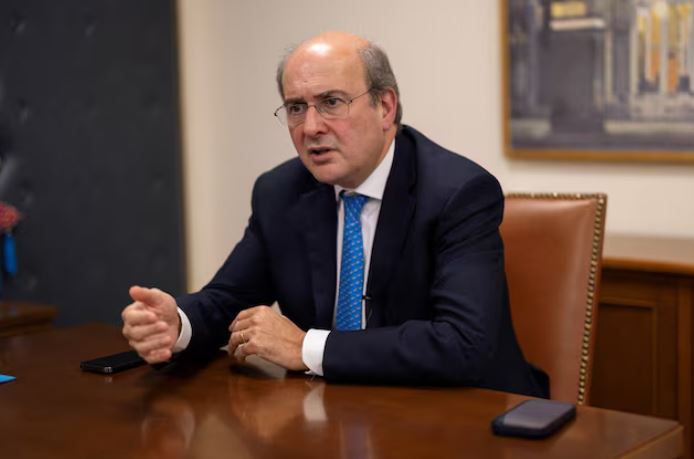In an interview with Reuters, Greek Finance Minister Kostis Hatzidakis stated that fiscal prudence was paramount, and that the country had to learn from past mistakes.
Outside the annual meetings of the International Monetary Fund and World Bank, Hatzidakis said increases in wages could only be put into place as long as they did not endanger the country’s debt-to-GDP ratio.
“We learned the lessons of the previous decade. Greece was living beyond its means,” Hatzidakis stated, referencing the crushing financial crisis.
Many analysts agree the debt crisis was brought about by a combo of unregulated taxation structures, inflated public sector pay, and high public debt. In exchange for massive bailouts for this debt, the EU, the European Central Bank, and the IMF imposed a harsh decade of austerity.
After a decade of reforms and bailouts, today Greece’s debt is shrinking and Greece’s finance ministry has committed to early repayment of some $8 billion in bilateral debt in the next four years, estimating that this would lower the country’s debt-to-GDP ratio – currently Europe’s highest – from 162% this year to 133.4% by 2028.
“We have the surveillance of the markets and investors. So we know that fiscal prudence is a precondition for us to convince everybody – the markets, the investors – that we are a credible government and credible country,” Hatzidakis told Reuters.
But for average Greeks, the financial situation is still quite dire. Unemployment is over 9%, Greece tops europe in rent payment struggles, and high inflation has nullified wage increases.
When asked specifically about the strikes of teachers and ship workers union that took place this week, demanding higher wages, Hatzidakis stated: “We always try to satisfy requests coming from various groups, to the extent that these requests do not put at risk the execution of the budget and the target set for the country and for the Greek economy as a whole.”
Last week healthcare workers also went on strike demanding higher wages.
Looking at the IMF building, Hatzidakis told Reuters, “Coming to this building, I always remember the previous decade, and I always remind myself that I shouldn’t allow Greece to come back to the previous decade but also to grow in a sustainable manner for the benefits of the Greeks.”
